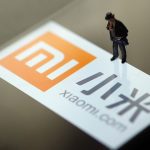Netizens confused as phone maker Xiaomi’s addition as a Chinese military company by US defense department, one more ‘final frenzy’
网民被美国国防部搞糊涂了,以为手机制造商小米是中国军工企业,又一次“最后的疯狂”

The US Department of Defense (DOD) on Thursday classified Xiaomi and eight other Chinese companies as “Communist Chinese military companies” after the initial release in June 2020.
On Thursday, the US Department of Commerce also added Chinese company Skyrizon to its Military End-User (MEU) List and identified China as a “foreign adversary” in its ICT supply chain.
Some analysts believe these orders could be seen as the “final frenzy” of the Trump administration. “If you want to condemn somebody, don’t worry about the pretext” should be the best explanation when blacklisting Chinese companies for “military-related” reasons, an analyst said.
According to the DOD, the listed companies “support the modernization goals of the People’s Liberation Army by ensuring its access to advanced technologies and expertise.” The listed companies include those in the aviation sector such as Commercial Aircraft Corporation of China (COMAC) and China National Aviation Holding Co.
China’s Ministry of Commerce on Friday said such decision has no legal basis, violates the basic rules of the market economy, and disrupts the international financial market.
“In general, the Trump administration’s continued tactics against Chinese companies at a time of impending power transition is mainly aimed at signaling its legacy at home and abroad by getting ‘tough’ with China, especially as Trump faces a second impeachment,” Hu Qimu, chief researcher at the Sinosteel Economic Research Institute, told the Global Times on Friday.
Based on the recent history of trade frictions between China and the US, it does not matter whether the alleged military involvement of the companies is substantiated or not; instead, all that matters is that China is suppressed and political leverage is gained. “If you want to condemn somebody, don’t worry about the pretext” should be the best explanation of US acts, Hu noted.
Xiaomi’s share price closed at 10.26 percent lower on Friday. The company confirmed to the Global Times on Friday that it is not owned, controlled, or affiliated with the Chinese military, nor is it a Chinese military company as defined under US NDAA law.
Semiconductor enterprise Advanced Micro-Fabrication Equipment Co. (AMEC), also listed, said in a filing with the Shanghai Stock Exchange on Friday that its addition to the US blacklist of Chinese firms will have no substantial impact on its production and operations. Its shares gained 2.46 percent in morning trading but ended 3.14 percent lower.
The topic “Xiaomi on US blacklist” immediately became a trending topic on Sina Weibo, with more than 120 million views as of noon on Friday. Many netizens said it was confusing for the US to suggest Xiaomi’s relationship with the military.
One Weibo user named Shuilijingshuiqi said the company founder’s name “Lei Jun” may have been misunderstood by the US – because “Jun” means army/troops in Chinese.
But other netizens saw the listing as positive news; some even “congratulated” Xiaomi, because it proves the company is successful enough to be noticed by the US.
“The listing and orders could be the ‘final frenzy’ of the Trump administration. The impact on Chinese enterprises will be widespread, but not long-lasting, as China has been preparing for situations like this based on previous clampdowns,” Wang Peng, an assistant professor at the Gaoling School of Artificial Intelligence at the Renmin University of China, told the Global Times on Friday.
Wang said the new US administration should look forward to having an easier trade relationship with China to differentiate itself from Trump. At the same time, however, Chinese enterprises should ensure they prepare for all kinds of possible crackdowns.
Analysts called for immediate cooperation among Chinese mobile phone and technology enterprises to develop core technology amid the US suppression.
“ZTE, Huawei and Xiaomi have become rivals that ‘threaten’ the US. It’s about time Chinese enterprises work together to reshape the industry chain in China and create a completely domestic supply chain,” a Beijing-based telecommunication analyst told the Global Times on Friday.
Ding Shaojiang, an industry observer, also said that the US decision will not hurt Xiaomi. Even if Qualcomm quits its shares, the business cooperation will continue.
The capital arm of Qualcomm – Qualcomm Ventures – has invested in Xiaomi.
“But the damage will be bigger on Qualcomm. Although investing in Xiaomi is a strategic investment, the share price of Xiaomi is rising continuously due to rapid growth. Once forced to withdraw the shares, Qualcomm will suffer financially,” Ding told the Global Times on Friday.








